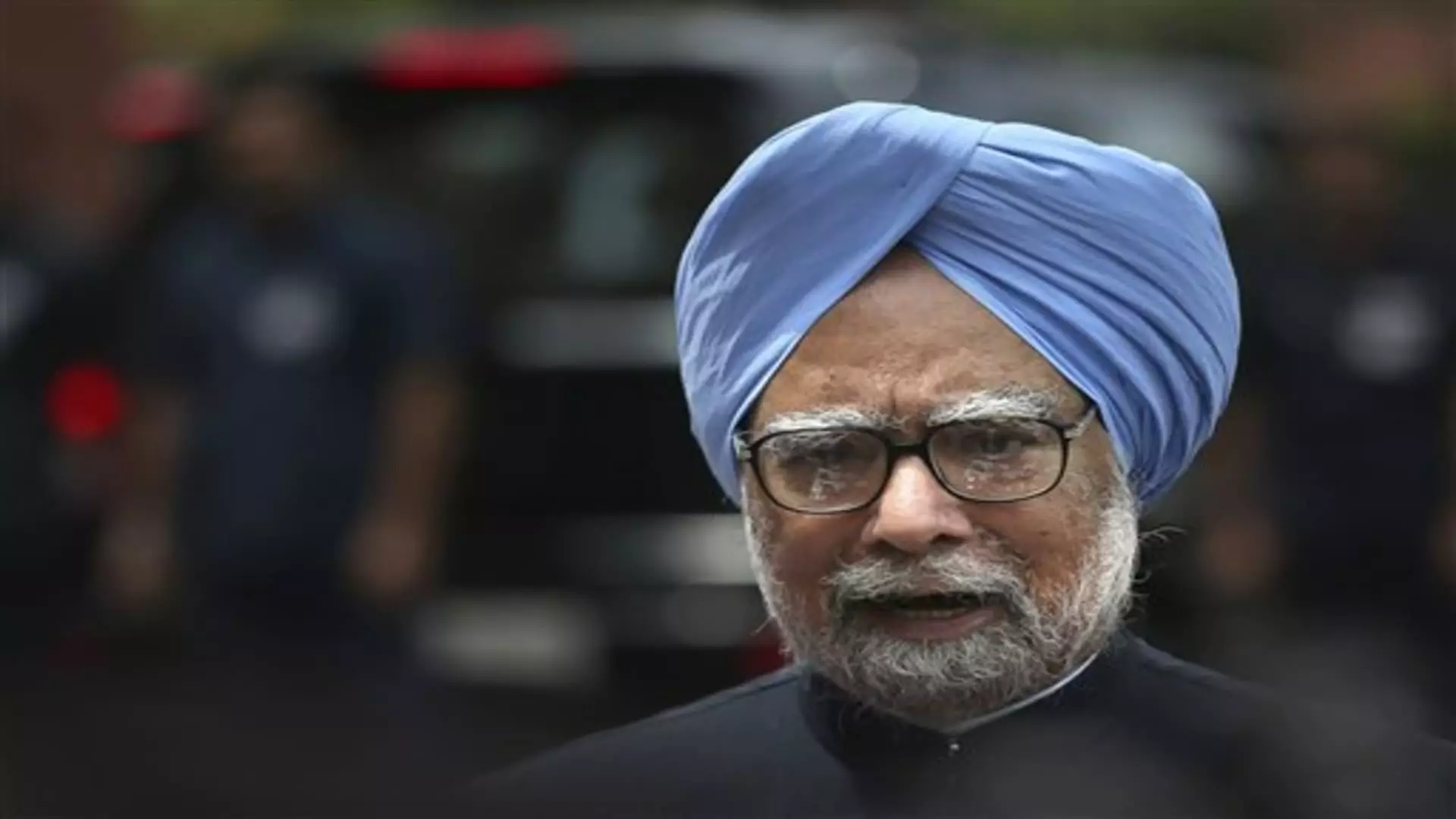Dr. Manmohan Singh, a man who led India through transformative years as a prime minister, was often labeled a “reluctant king.” This characterization resonates profoundly with the narrative of a leader thrust into the limelight at a time of economic turmoil and uncertainty. Born into poverty in what is now Pakistan, his story embodies resilience. His humble beginnings starkly contrasted the lofty positions he would ultimately hold, catalyzing India’s journey towards unprecedented economic growth. Singh’s recent passing at the age of 92, following age-related health complications, not only marks the end of an era but reflects the indelible impact he had on Indian polity and economy.
Singh’s tenure as the Finance Minister from 1991 to 1996 was pivotal in redefining India’s economic landscape. Facing an acute balance of payments crisis, Singh implemented sweeping reforms that shifted India’s economic paradigm from a regulated to a liberalized framework. His policies were not merely reactive; they showcased a visionary approach aimed at making India a more open economy. Singh famously articulated in his maiden budget that “No power on earth can stop an idea whose time has come,” serving as both a philosophical underpinning and a rallying cry for liberal economic reforms.
His efforts laid the groundwork for what would become a remarkable economic narrative for India in subsequent decades. Millions were lifted out of poverty, employment opportunities burgeoned, and a new middle class emerged due to his commitment to reform. However, the success of these policies often met resistance and skepticism, emphasizing the complexity of democratizing an economy in a diverse nation.
The transition from finance minister to prime minister in 2004 was as unexpected as it was significant. Sonia Gandhi, leader of the Congress Party and key architect of its surprising electoral victory, advocated for Singh’s leadership, aware that her foreign origins might render her vulnerable to political attacks. Singh’s leadership emerged during a golden period of economic growth and stability, and his administration was lauded for implementing welfare schemes that sought to distribute the benefits of this newfound prosperity to India’s impoverished rural populace.
One notable achievement of his government was the landmark civil nuclear agreement with the United States in 2008, which invigorated bilateral relations and showcased Singh’s diplomatic acumen. Yet, despite these successes, Singh grappled with the perennial challenge of coalition politics, which often thwarted more ambitious reforms aimed at further liberalizing the economy.
Singh’s government, although characterized by significant achievements, was not impervious to criticism. The perception that Sonia Gandhi wielded more power fostered skepticism regarding Singh’s authority. His calm demeanor did not shield him from the waves of discontent manifesting in public protests against corruption scandals that marred his administration’s reputation, particularly during the latter part of his tenure.
Despite these challenges, Singh retained a reputation for integrity and simplicity. He approached governance with a dedication to honesty, asserting time and again that his shortcomings were not born of malice but rather systemic challenges within the Indian political framework. While acknowledging that his administration faced obstacles, he remained confident that history would ultimately be more generous than his contemporary critics.
As Singh grappled with the political realities of his second term, the economic growth narrative he had cultivated began to falter. The global economic environment underwent a significant contraction, dampening investment sentiment and undermining domestic economic stability. Ultimately, in 2014, the Congress Party faced a significant defeat at the hands of Narendra Modi’s Bharatiya Janata Party, signaling a paradigm shift in Indian politics.
Looking back, Singh’s legacy rests on his commitment to transformative economic policies and his ability to navigate complex political landscapes. His belief that “history will be kinder” reflects a profound understanding of the tumultuous nature of political legacies. While Singh may have departed this world, the foundations he laid will continue to shape India’s trajectory for years to come.
Singh is survived by his family, including his wife and three daughters, leaving behind not just a political legacy, but also a narrative of perseverance that reverberates within the heart of India. His story is a reminder that often, the quietest leaders can evoke the most profound change.


Leave a Reply